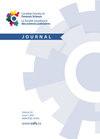Isotope ratio method: state-of-the-art of forensic applications to CBRNE materials
IF 0.5
Q4 MEDICINE, LEGAL
Canadian Society of Forensic Science Journal
Pub Date : 2022-04-15
DOI:10.1080/00085030.2022.2054109
引用次数: 1
Abstract
Abstract The threat of Chemical, Biological, Radiological, Nuclear, and Explosives (CBRNE) events is a serious challenge worldwide. This threat is aggravated by the prevalence of potential CBRNE materials normally used for industrial and scientific purposes. One potential deterrent to the use of CBRNE materials for nefarious purposes is the ability by law enforcement to attribute interdicted threat materials in terms of their provenance and linking them to people, places, and events. Isotope Ratio Method (IRM) is a technique that utilizes ratios of different isotopes of particular elements present in an investigated material to determine an isotopic signature of that material. A survey of the literature has been conducted in order to consolidate the state of current knowledge on the forensic application of IRM specifically to CBRNE materials. This review is intended for both researchers and policy makers to help identify gaps in knowledge and to determine the strategic direction of research and development to advance the application of IRM in the general arena of public safety and security.同位素比值法:CBRNE材料法医学应用的最新进展
摘要化学、生物、辐射、核和爆炸物(CBRNE)事件的威胁是世界范围内的一个严重挑战。通常用于工业和科学目的的潜在CBRNE材料的普遍存在加剧了这种威胁。对将CBRNE材料用于邪恶目的的一个潜在威慑是,执法部门有能力根据其来源将被拦截的威胁材料归为来源,并将其与人、地点和事件联系起来。同位素比值法(IRM)是一种利用研究材料中特定元素的不同同位素比值来确定该材料同位素特征的技术。对文献进行了调查,以巩固IRM特别是CBRNE材料的法医学应用方面的现有知识。这篇综述旨在帮助研究人员和政策制定者找出知识差距,并确定研究和开发的战略方向,以推动IRM在公共安全和安保领域的应用。
本文章由计算机程序翻译,如有差异,请以英文原文为准。
求助全文
约1分钟内获得全文
求助全文

 求助内容:
求助内容: 应助结果提醒方式:
应助结果提醒方式:


